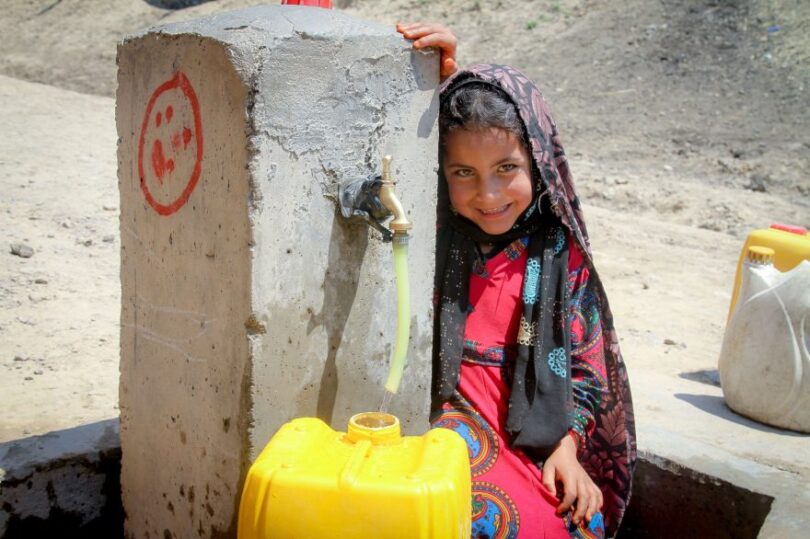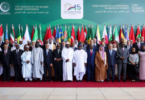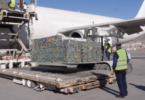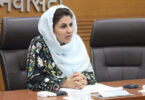KABUL (Khaama Press) : The International Organization for Migration (IOM) has issued a warning highlighting that a staggering 79% of people in Afghanistan lack sufficient access to water for essential needs such as drinking, cooking, bathing, and washing.
The water crisis in Afghanistan is further exacerbated by concurrent challenges, most notably the most severe drought in thirty years, a deepening economic turmoil, and the enduring impacts of four decades of warfare.
These compounding factors have resulted in an alarming situation where half of the population is experiencing acute hunger, with an alarming six million individuals teetering on the edge of famine.
Recently the organization tweeted that in 2022, they successfully offered water, sanitation, and hygiene aid to 160,000 individuals in Afghanistan. The post emphasized the urgency of further action to tackle the ongoing water and hygiene crisis.
The organization has urgently appealed for $33 million to deliver essential water, sanitation, and hygiene assistance to 2.3 million people in Afghanistan throughout 2023. They emphasize that “time is running out, and Afghanistan cannot wait.”
Earlier this month, the UN Office for the Coordination of Humanitarian Affairs (OCHA) issued a dire report revealing Afghanistan’s deeply concerning state of affairs.
According to the report, 25 of the country’s 34 provinces are currently experiencing either “severe” or “catastrophic” drought conditions.
This distressing shows the urgent need for international attention and concerted efforts to address the escalating humanitarian crisis in these drought-stricken regions.
Moreover, Afghanistan is currently grappling with the most extensive and severe humanitarian crisis globally, where 29.2 million people need humanitarian assistance for their survival.
The nation is confronted with one of the most alarming malnutrition rates globally. Around 3.2 million children and 840,000 pregnant and nursing mothers are grappling with the harsh reality of malnourishment, showing the scale of the issue in the country.
The updated 2023 Humanitarian Response Plan by OCHA requires $3.23 billion in funding to assist millions of vulnerable individuals in Afghanistan. However, only 23% of this required funding has been received up to this point.







